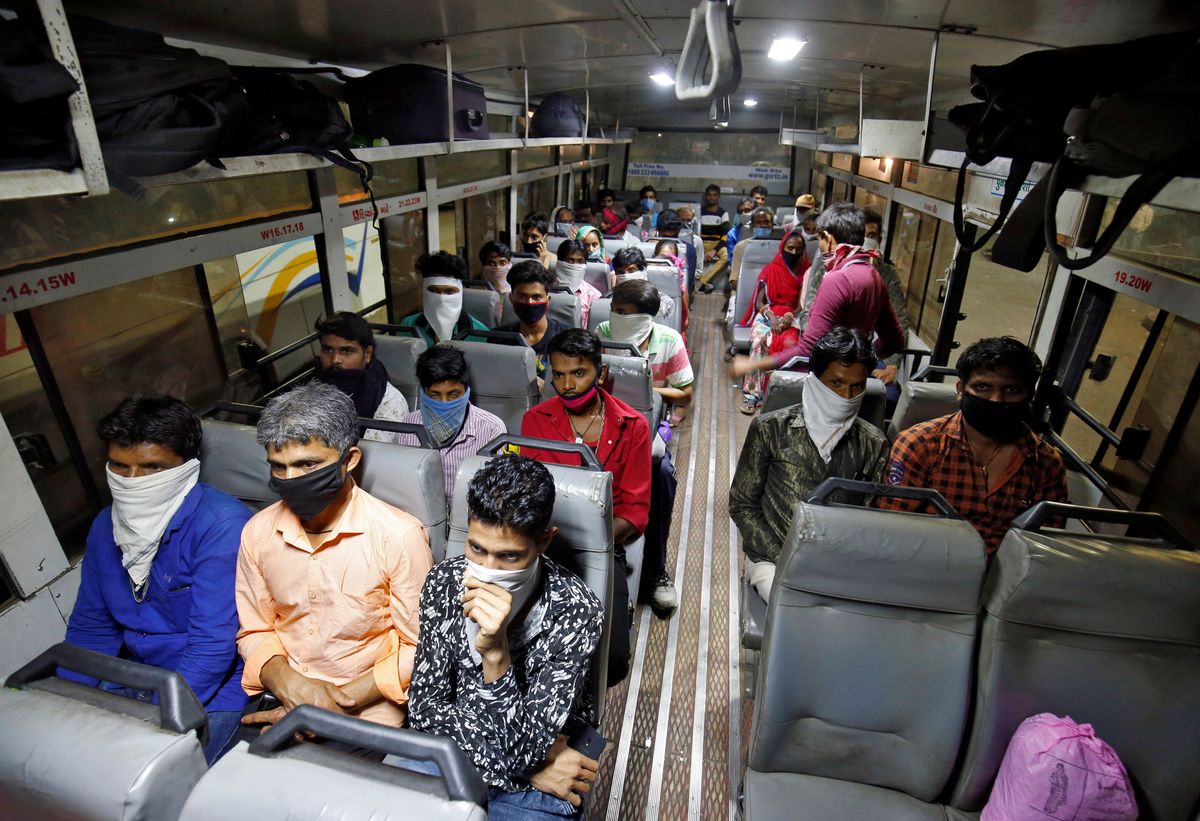The major outbreaks of coronavirus in China, Europe, and the United States have garnered the most Western media attention in recent weeks. Yesterday, we went behind the headlines to see how Mexico and Russia are faring. Today, we'll look at three other potential hotspots where authorities and citizens are now contending with the worst global pandemic in a century.
Start with India. For weeks, coronavirus questions hovered above that other country with a billion-plus people, a famously chaotic democracy where the central government can't simply order a Chinese-scale public lockdown with confidence that it will be respected. It's a country where 90 percent of people work off the books— without a minimum wage, a pension, a strong national healthcare system, or a way to work from home.
This week, Prime Minister Narendra Modi announced a 21-day lockdown of the entire country, "a total ban on venturing out of your homes." His words triggered an immediate run on shops for all kinds of supplies, and some police have already used force against violators of Modi's order.
Bottom-line: Coronavirus risks to public health (and public order) in India are enormous and growing.
Next to Nigeria, Africa's most populous country and largest economy. Early headlines told a good news story. At the beginning of this week, this country of nearly 200 million people had confirmed fewer than 50 cases of COVID-19 infection. Some have lauded Nigeria's Centre for Disease Control as a model for other countries.
The bad news is that it appears that just 152 people had been tested as of March 22. Compare that with some 15,500 tests conducted in South Africa.
Bottom-line: While Nigeria's health officials have valuable experience in dealing with Ebola, Lassa Fever, and other infectious diseases, it probably lacks the equipment needed to manage a health emergency as broad as COVID-19. And it doesn't help that oil-exporting Nigeria is struggling with the current crude price crash.
Finally, to refugee camps inside Turkey. Concerns are growing for the health of the more than 3 million refugees living in close quarters in camps inside Turkey. Forget the 20-second handwash. Reports from the camps say large numbers go a week without showers, and hundreds share water taps and toilets.
Earlier this month, Turkey's President Erdogan threatened to send large numbers of these desperate people toward Europe in response to events inside Syria that threatened to overwhelm Turkey's ability to cope. That crisis has been averted for now.
But fear is growing that living conditions inside these camps make them an ideal breeding ground for the rapid spread of COVID-19 — and with precious few resources to treat the infected.
Bottom-line: If coronavirus begins sweeping through these camps, how will Turkey cope? Will refugees find themselves caught in a lethal trap between Turkey, Syria, and Europe?



















